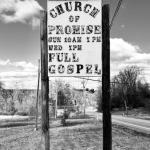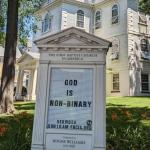Our Twitter Pope, Pope Francis, tweeted a message a week or so ago that seems to summarize so much about his papacy: “Inequality,” he taught his tens of thousands of followers, “is the root of social evil.”
And this was merely the opening act. He followed this message up with an urgent call for the “legitimate redistribution” of wealth to benefit the world’s destitute.
These teachings are in accord with the lesson Pope Francis has been delivering since that day in March, 2013, when he chose the name Francis. “Don’t forget the poor.” On the day of his election, Pope Francis recalled, his good friend the Brazilian Cardinal Claudio Hummes spoke to him in those very words. And it is clear that Pope Francis has taken those words very much to heart.
The Pope’s call for economic justice happily coincides with the publication of a new report, authored by E.J. Dionne, William Galston and others. Published by the Brookings Institution, the report (“Faith in Equality: Economic Justice and the Future of Religious Progressivism”) recognizes that historically there has been a close relationship between progressive thought and the Church. Before the Civil War, in the early nineteenth century, it was progressive Protestants — especially Quakers and Unitarians — who raised high the banner of the anti-slavery movement.
For most of the twentieth century, from the early 1900s to the 1980s at least, American Catholics provided steady guidance and support for progressive causes. That pantheon of heroes included Msgr. John A. Ryan (1869-1945). He was a “Right Reverend New Dealer” according to his biographer. Msgr. Ryan popularized if he did not actually invent the term “living wage.” He argued relentlessly over decades for the adoption of the minimum wage.
Read the rest here











